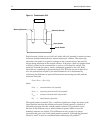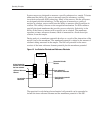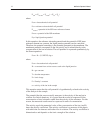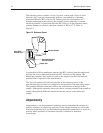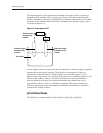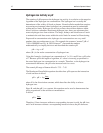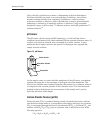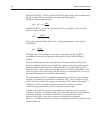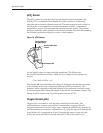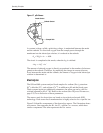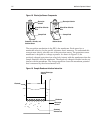
Operating Principles IĆ7
The electrochemical cell contains two electrodes: the anode, which is positively
charged and the cathode, which is negatively charged. The measuring electrode,
which is frequently composed of platinum(Pt) or another noble metal, can be either
the anode or the cathode. Each electrode is attached to an external voltage source
as shown in Figure I-4.
Ammeter
Test Solution
Negatively charged
electrode acts as a
cathode.
Positively charged
electrode acts as
an anode.
Applied
Voltage
Electrical current
is measured by
ammeter.
As the sample comes in contact with the two electrodes, a known voltage is applied
between the anode and the cathode. The analyte to be measured is either an
oxidizable or reducible species. If the analyte is an oxidizable species, it will
diffuse to the anode where it is oxidized. If the analyte is a reducible species, it will
diffuse to the cathode, where it is reduced. In either case, the electrochemical
reaction produces a current flow between the anode and cathode that can be
measured by a device, such as a milli/micro ammeter. The current measured is
directly proportional to the concentration of substance (oxidizable or reducible)
present in the sample solution.
The 800 series systems analyze blood samples for pH, pO
2
, and pCO
2.






